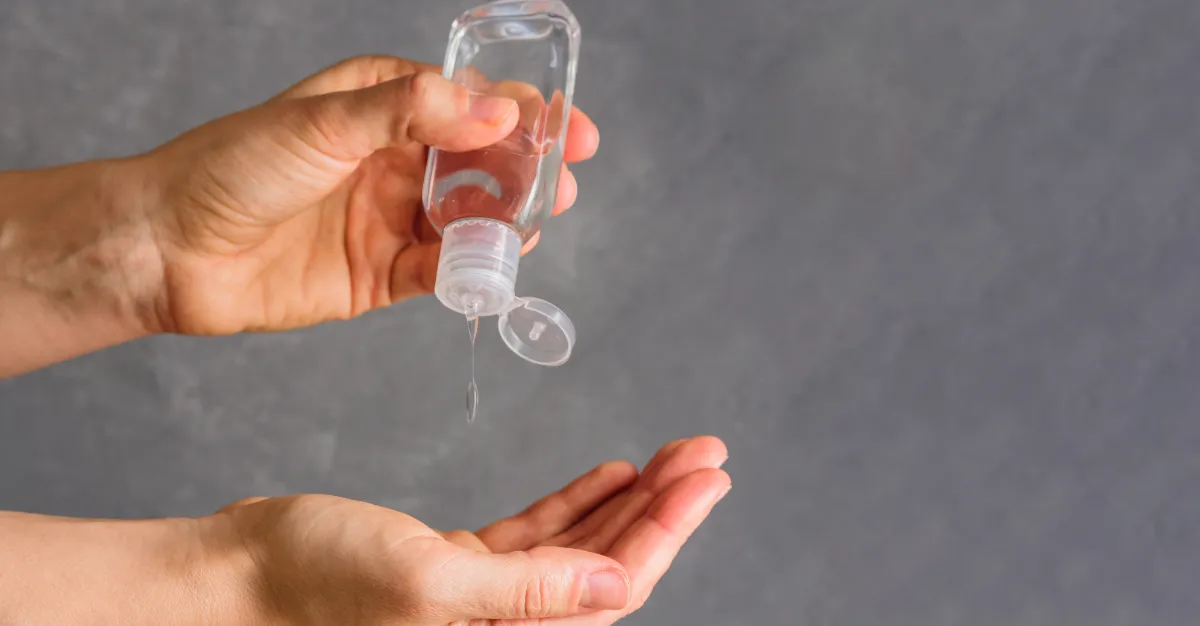
Hand Sanitizer

🧼 What Over-Sanitizing Does to Your Microbiome — And Why It’s Time to Rethink “Clean”
Have you ever paused mid-sanitize and thought, Is this really helping me? After years of being told to scrub, spray, and sterilize, it's easy to assume that more sanitizing = better health. But here’s the truth: going overboard with sanitizers could actually be weakening your body’s natural defenses.
Let’s talk about your microbiome—and why it might be begging you to chill with the disinfectants.
💪 Meet Your Microbiome: Your Inner Ecosystem of Superpowers
Your microbiome is the bustling, invisible universe of bacteria, fungi, and even viruses that live with you, not against you. These microbes are your allies. They train your immune system, help digest food, protect you from harmful invaders, and even support your mood and metabolism.
But here’s the catch: when we obsessively over-sanitize—especially with products containing harsh chemicals like triclosan or alcohol-heavy formulas—we don’t just kill off “bad germs.” We wipe out the good guys too.
Over time, this creates an imbalance that weakens your body's natural resilience.
😷 Over-Sanitizing = Underperforming Immunity
Think of your immune system like a student. It needs a variety of “teachers” (your microbes!) to learn who’s a friend and who’s a foe. When your microbial diversity shrinks, your immune system can get confused.
That confusion can show up as:
Overreactions (allergies, autoimmune flares)
Underreactions (getting sick more often)
Chronic inflammation and imbalance
Kids raised in ultra-sanitized environments are now showing higher rates of asthma, eczema, and inflammatory gut conditions. This aligns with the hygiene hypothesis—the idea that we need some exposure to microbes to build strong, balanced immunity.
🚩 Is Your Microbiome Crying Out for Help?
Here are some red flags that your microbial ecosystem might be out of whack:
You’re getting sick more often—or staying sick longer
Bloating, gas, constipation, or diarrhea are the norm
You’re noticing more allergies, skin rashes, or sensitivities
Your skin feels dry or irritated even with moisturizer
You just feel… off or low-energy without knowing why
If you nodded at more than one of these, it’s time to show your microbiome some love.
🌿 How to Protect Your Microbiome Without Ditching Hygiene
You don’t have to live in a mud hut or stop washing your hands. But you can choose smarter ways to stay clean and balanced:
✅ Choose Gentle Over Harsh
Use mild, unscented soap and warm water. Skip triclosan and antibacterial soaps unless absolutely necessary.
🖐 Cut Back on the Hand Sanitizer
Keep alcohol-based sanitizer for times when soap isn’t available—like on the go. But at home? Water and soap are enough.
🥗 Feed Your Gut, Fuel Your Immunity
Your gut is home base for your microbiome. Load up on fiber-rich veggies, legumes, nuts, and fermented foods like kimchi, yogurt, or sauerkraut.
🌱 Get Outside (and Get a Little Dirty!)
Play in the dirt. Hug your dog. Walk barefoot in the grass. Exposure to nature boosts microbial diversity in ways that lab-made probiotics can’t.
💊 Consider Targeted Probiotics
If you’ve had a round of antibiotics or months of heavy sanitizing, a high-quality probiotic might help—but get guidance from a practitioner first.
🔬 Want to Know Exactly What’s Going On in Your Gut?
Sometimes your microbiome needs more than kombucha and a hike. That’s when testing and personalized care come in.
Here’s what we might look at:
Stool testing to map your microbiome, identify pathogens, and check digestion markers
Secretory IgA to assess gut-immune health
Zonulin or food sensitivity tests to explore leaky gut or inflammation
Micronutrient testing to uncover hidden deficiencies affecting immunity
This deeper approach helps us stop guessing and start restoring.
✨ Let’s Reclaim the Power of a Balanced Body
We’re not saying all sanitizing is bad. In hospitals, it saves lives. But at home, too much of a good thing becomes... not so good.
Supporting your microbiome supports everything—your skin, digestion, immune health, energy, and mood.
Let’s ditch the myth that “sterile = safe” and start building resilient, vibrant health from the inside out. With a few thoughtful shifts you can build a resilient, well-trained immune system that’s ready for whatever comes your way. If you need guidance, I am here to help!
Book your 15 minute free consultation: https://beetrueintegrativemedicine.com/book
References
Bloomfield SF, Stanwell-Smith R, Crevel RW, Pickup J. Too clean, or not too clean: the hygiene hypothesis and home hygiene. Clin Exp Allergy. 2006 Apr;36(4):402-25. doi: 10.1111/j.1365-2222.2006.02463.x. PMID: 16630145; PMCID: PMC1448690.
Rivera-Amill V. The Human Microbiome and the Immune System: An Ever Evolving Understanding. J Clin Cell Immunol. 2014 Dec;5(6):e114. doi: 10.4172/2155-9899.1000e114. Epub 2014 Nov 5. PMID: 27088046; PMCID: PMC4831629.
Rocha LA, Ferreira de Almeida E Borges L, Gontijo Filho PP. Changes in hands microbiota associated with skin damage because of hand hygiene procedures on the health care workers. Am J Infect Control. 2009 Mar;37(2):155-9. doi: 10.1016/j.ajic.2008.04.251. PMID: 19249642.
Haahtela T, Holgate S, Pawankar R, Akdis CA, Benjaponpitak S, Caraballo L, Demain J, Portnoy J, von Hertzen L; WAO Special Committee on Climate Change and Biodiversity. The biodiversity hypothesis and allergic disease: world allergy organization position statement. World Allergy Organ J. 2013 Jan 31;6(1):3. doi: 10.1186/1939-4551-6-3. PMID: 23663440; PMCID: PMC3646540.
